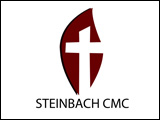It’s September and Manitobans with students in the family are in “back-to-school mode.” Farmers have education on their minds as well because a provincial election is nearing and we are pushing for changes that will lower our property tax bills.
Many people may not realize this, but Manitoba farm families shoulder an inequitable share of the cost of education through property taxes on residences, farmland and production buildings. As a member of the Manitoba Education Financing Coalition, Keystone Agricultural Producers (KAP) along with 39 other organizations representing 250,000 citizens supports removing education tax from all property.
Education is a core service and it should be funded from general revenues. The current education funding system is unsustainable for all Manitobans. Along with the complete removal of education tax from property, the province needs to develop a plan over five years to shift to a fair way of funding education. Today the province funds 65.4 per cent of the cost of operating our schools with the balance funded from property taxes. The Manitoba Education Financing Coalition is asking that this move to 80 per cent during the next term of government with the ultimate goal of 100 per cent funding directly from the general revenues in the future.
As farmers, we need a system that takes into account the way our farms operate today. The scale of farms in Manitoba has changed over the many years since the education funding model was first introduced and it is time to change the way we deal with school tax collections. Fundamental taxation policy always reflects an individual’s or business owner’s “ability to pay.” One concern that I hear from KAP members over and over again is that the assessed value of farmland and production buildings does not necessarily reflect their “ability to pay.” Beginning farmers and sectors struggling through difficult world market conditions continue to be taxed at the same rate as the most profitable farms in our province. Clearly, this distorts the balance of fair taxation and will be unsustainable over the long term.
KAP appreciates the 80 per cent Farmland School Tax Rebate committed in the 2011 budget to decrease education tax on farmland. Obviously government agrees with the principle of fair taxation and the fact that prior to the introduction of the rebate we were paying up to eight times more in education taxes than our non-farming neighbors. Though many farmers can benefit from the rebate program, we know we can not continue to rely on it because it could eventually be eliminated.
With the rebate funding sourced out of the budget of Manitoba Agriculture, Food and Rural Initiatives, we are displacing other valuable department programs which are meant to support and strengthen family farms in our province. Since this is a rebate program, a farm must first pay all property taxes in full before applying for reimbursement thereby; farms in financial difficulty must find the money to pay all their taxes at a time when they may be most vulnerable. KAP will continue to push for government to remove education taxes from all property to benefit Manitobans and ensure we have a strong and successful education system in the future.
Education tax is a growing concern for all of us, not only those farming in rural areas. Public opinion does have an impact on the provincial government. So whether you live in a city or on a farm, as an individual you can help by sending an email or letter to your candidates. KAP also encourages everyone to discuss education tax with election candidates and call for action on this important issue. With the election happening this fall, we encourage all party candidates to commit to removing education tax from property as part of their campaigns. For more information on removing education tax from all property and to send an electronic letter to the provincial government, please visit www.letspayfair.com.



